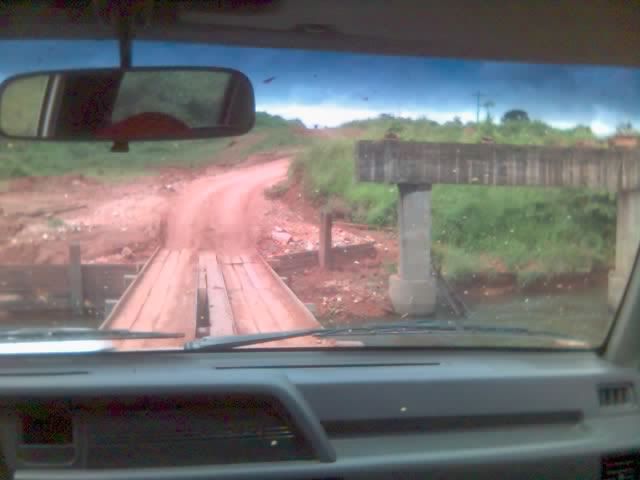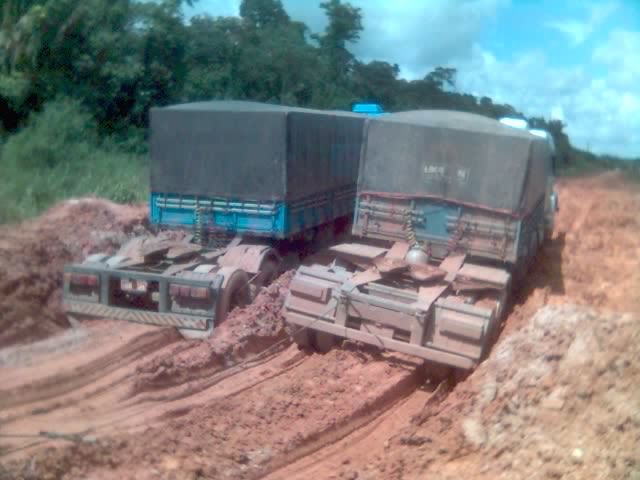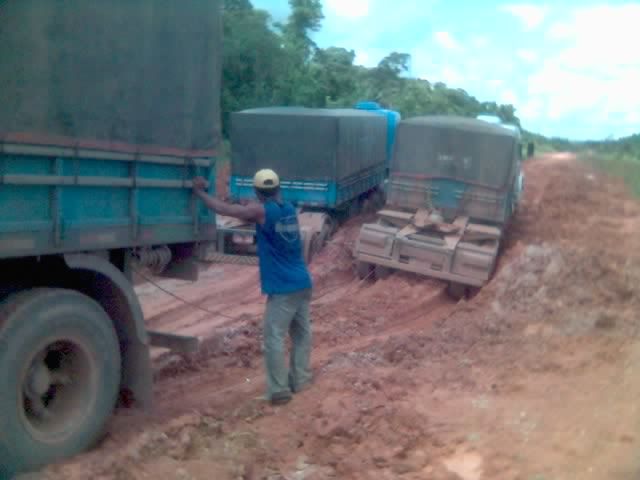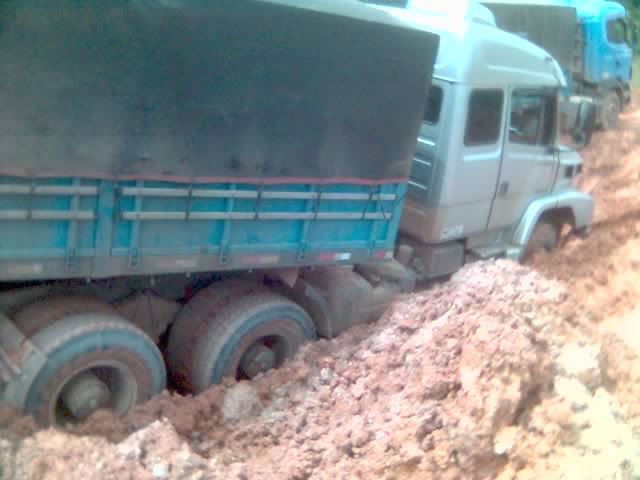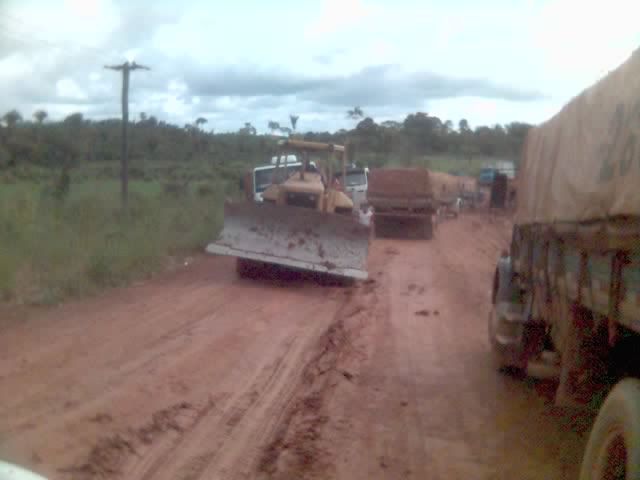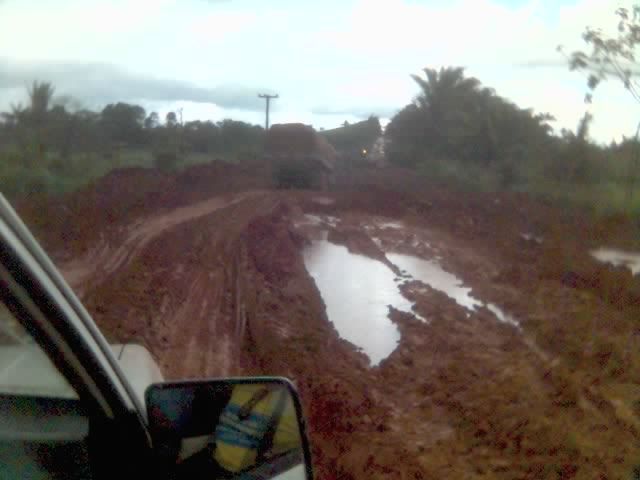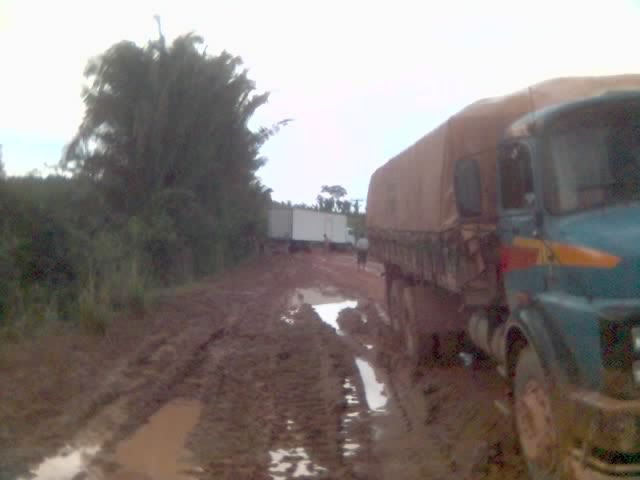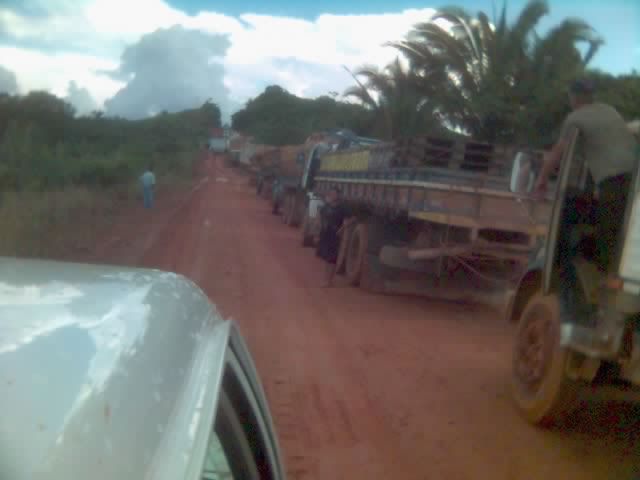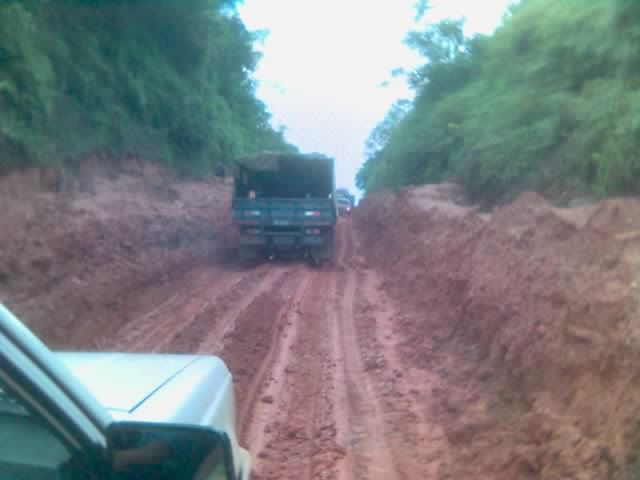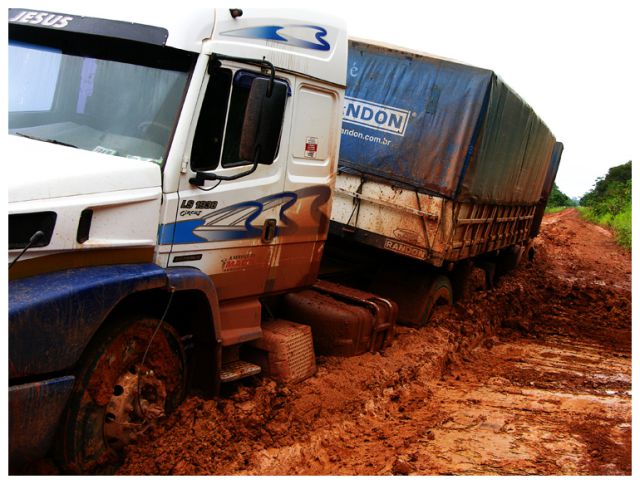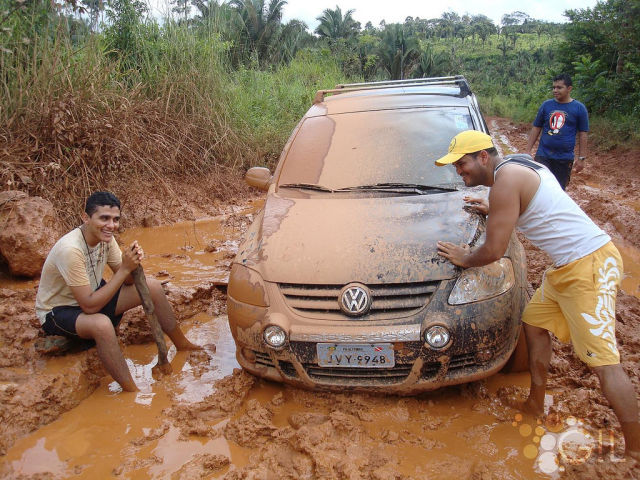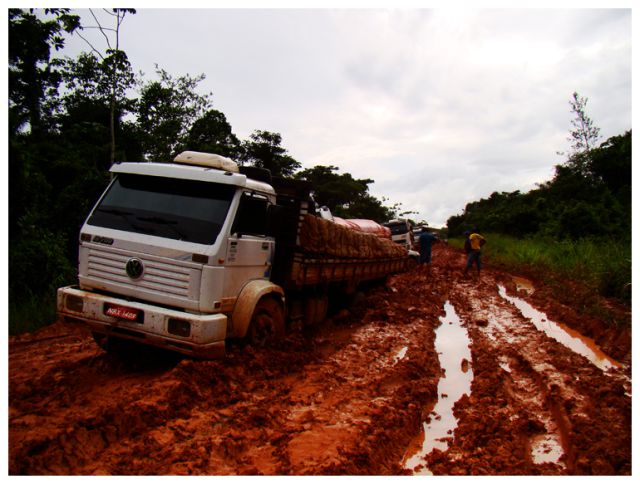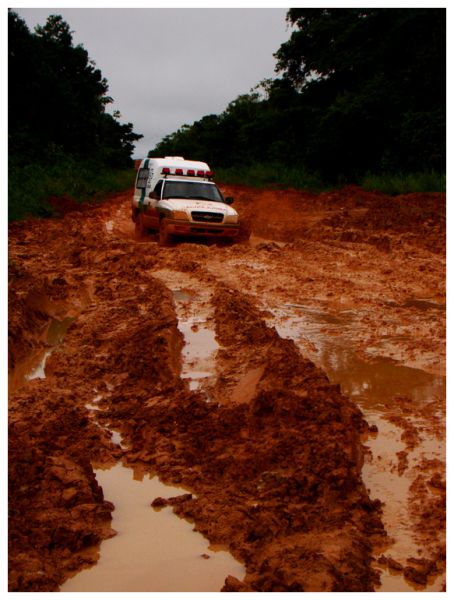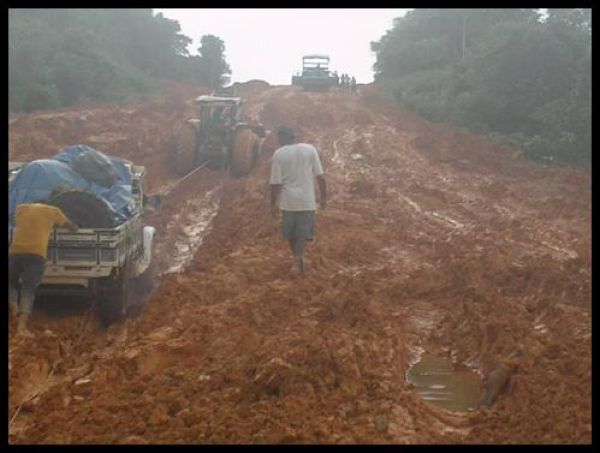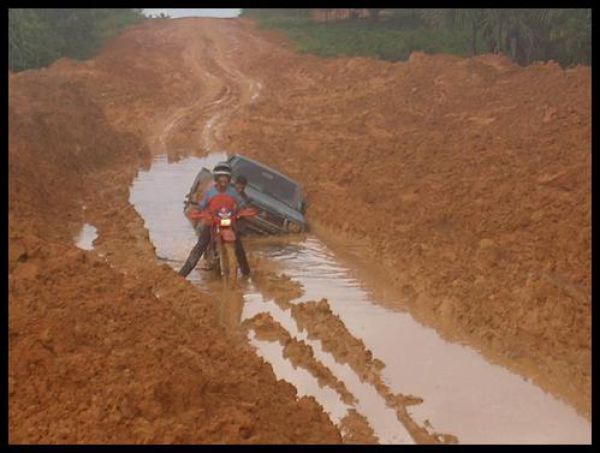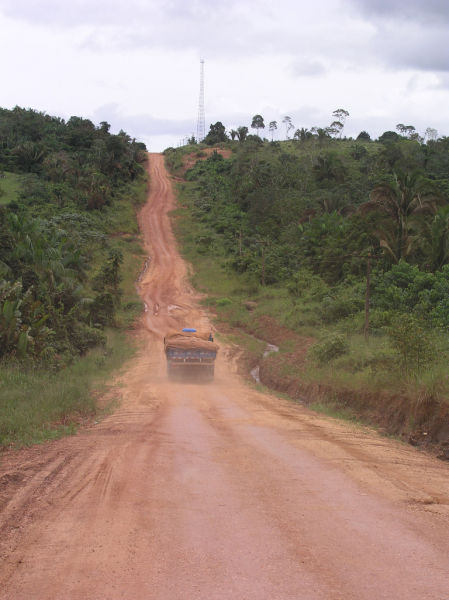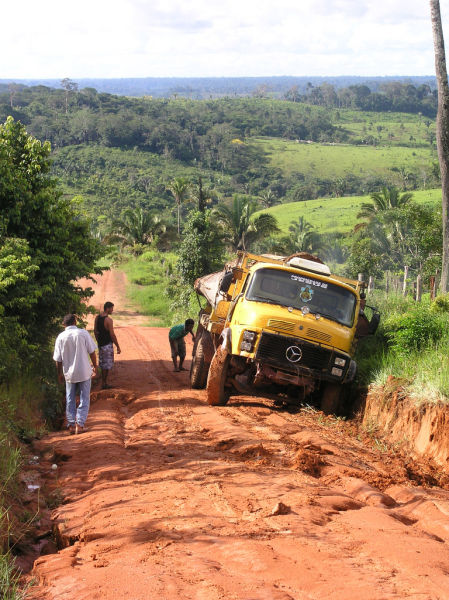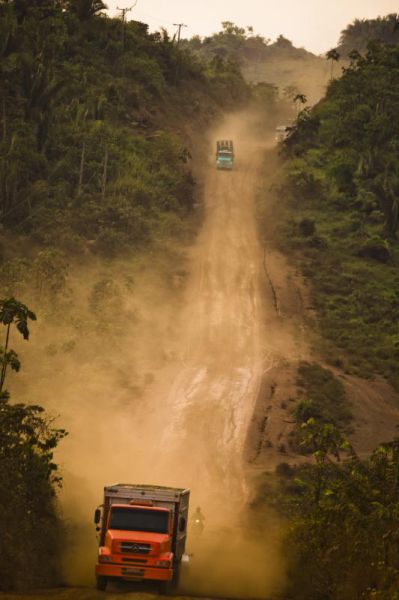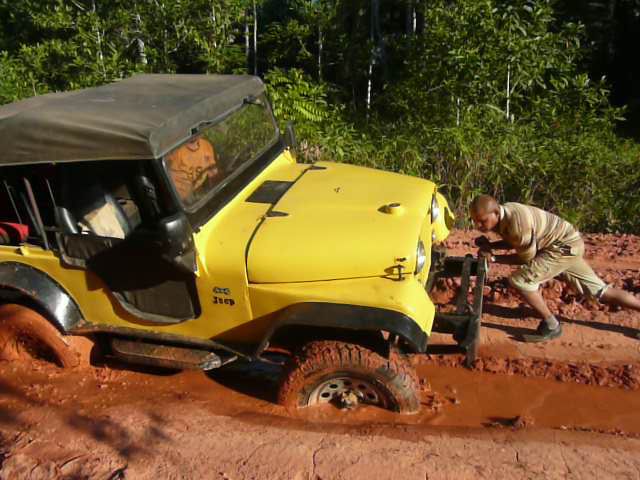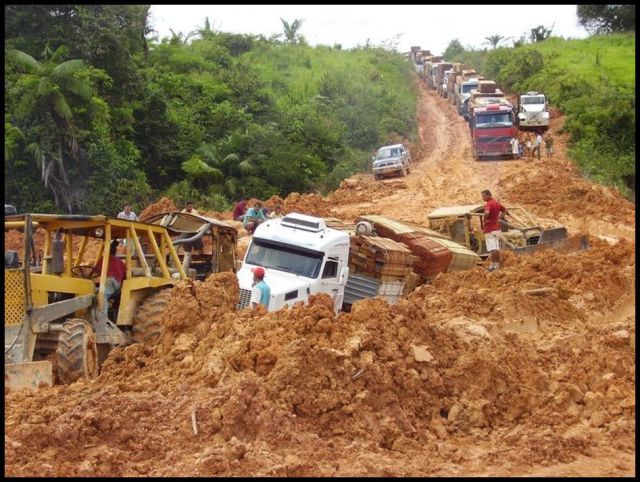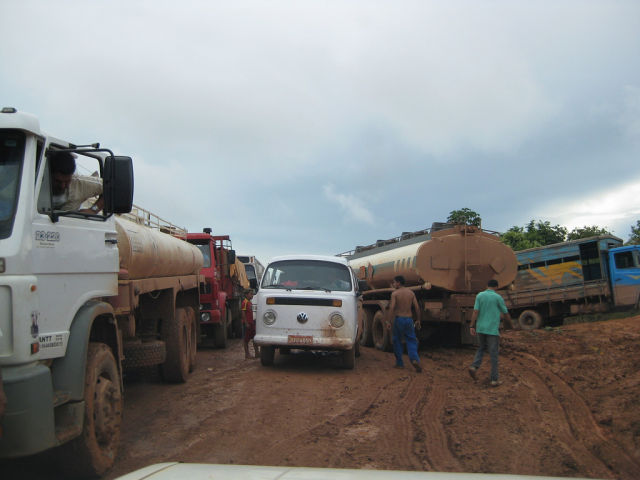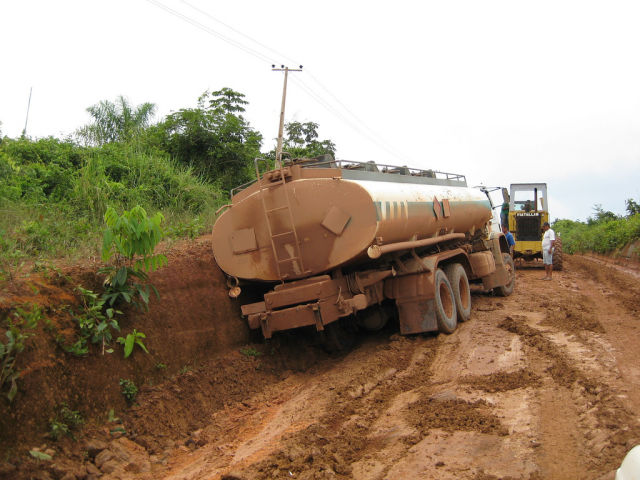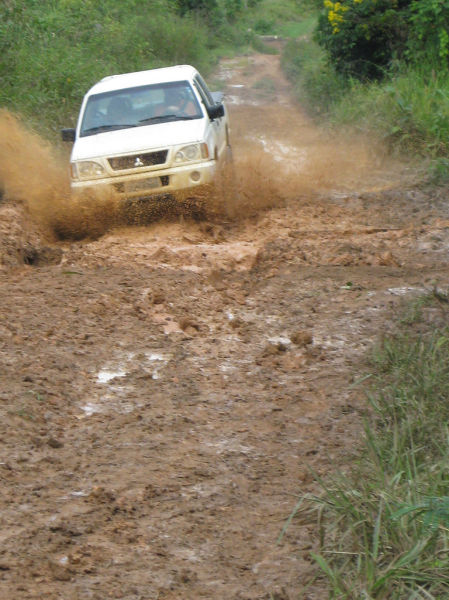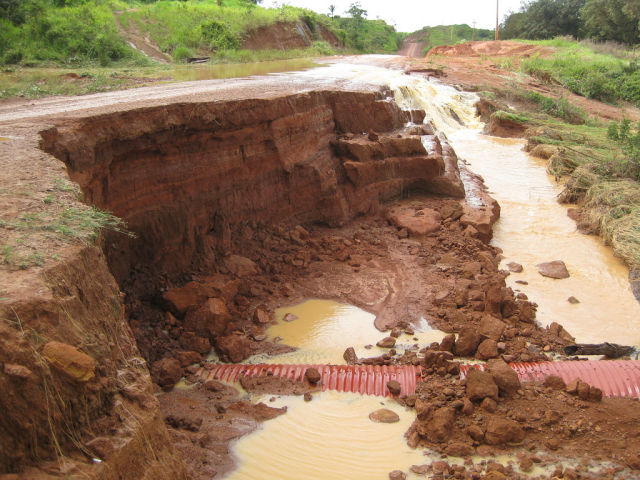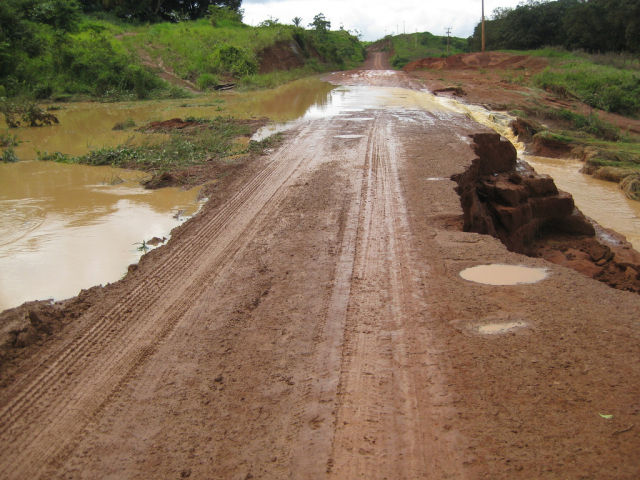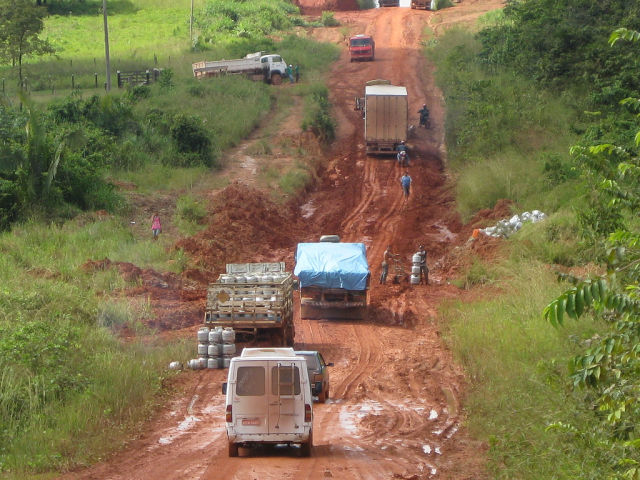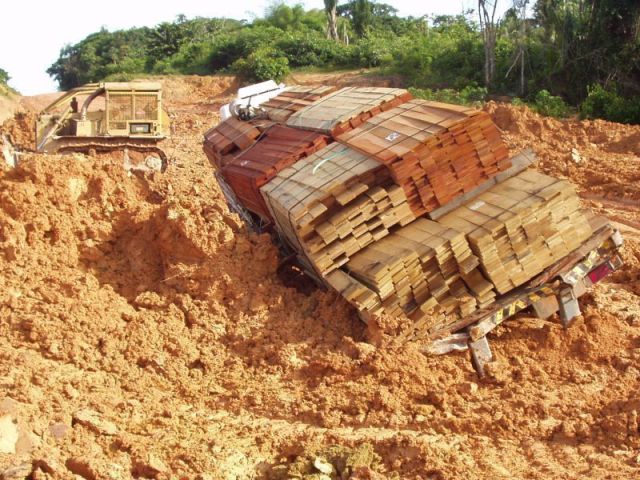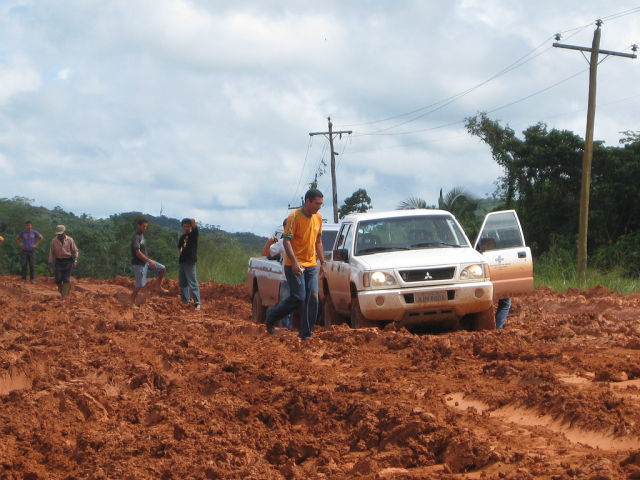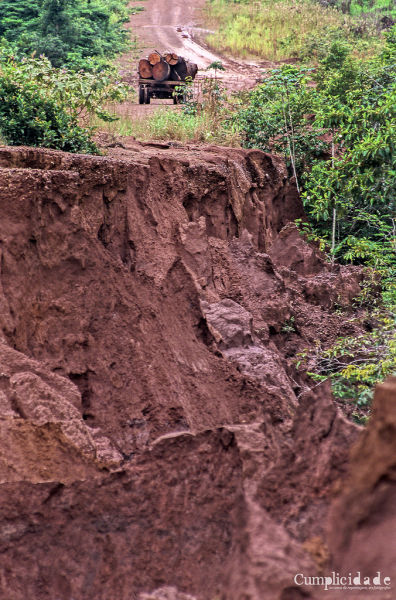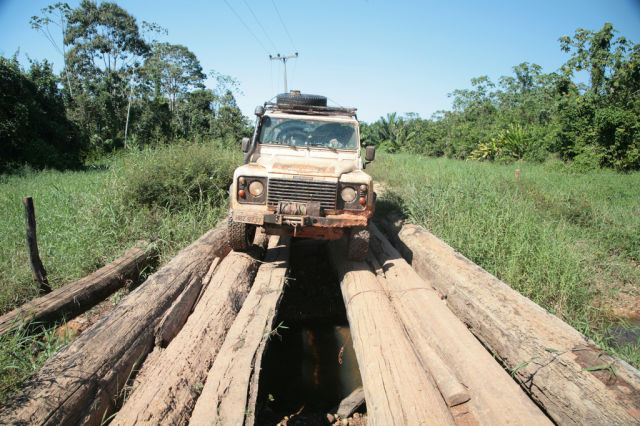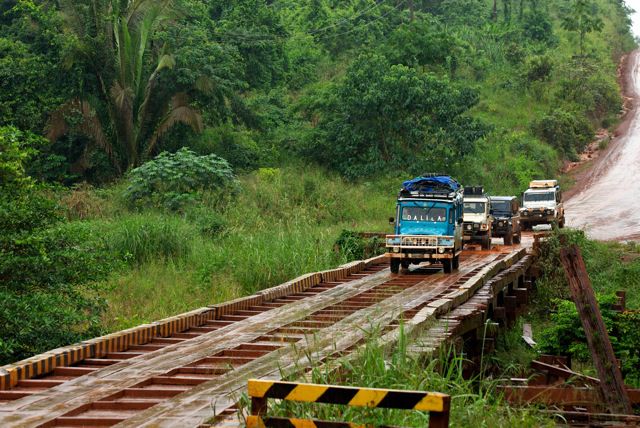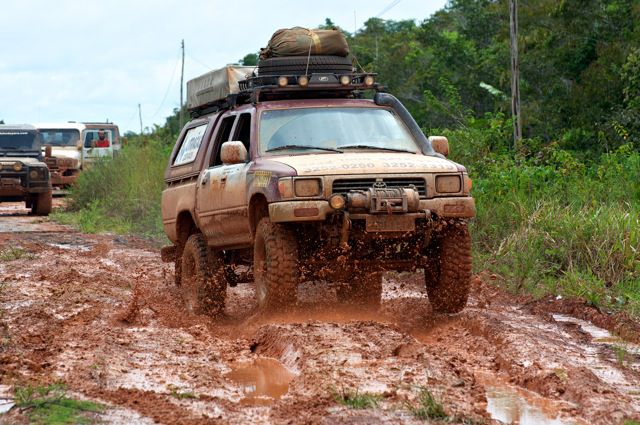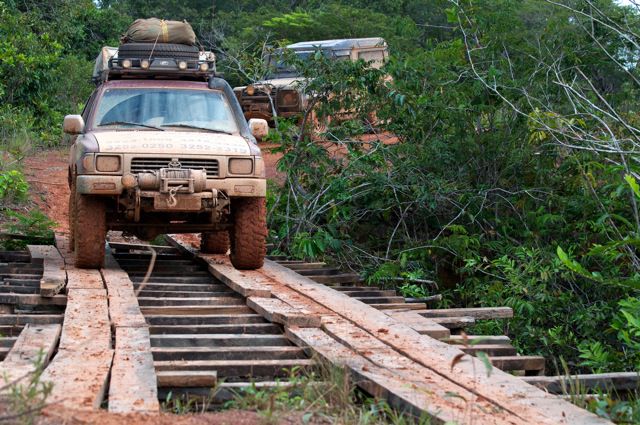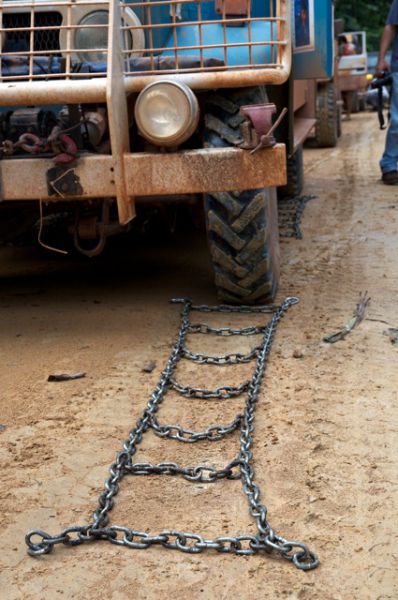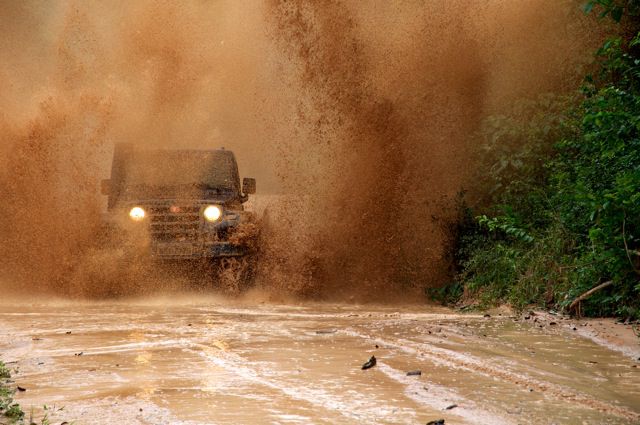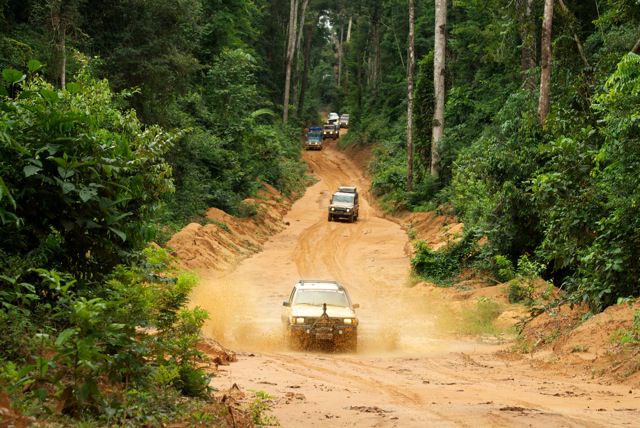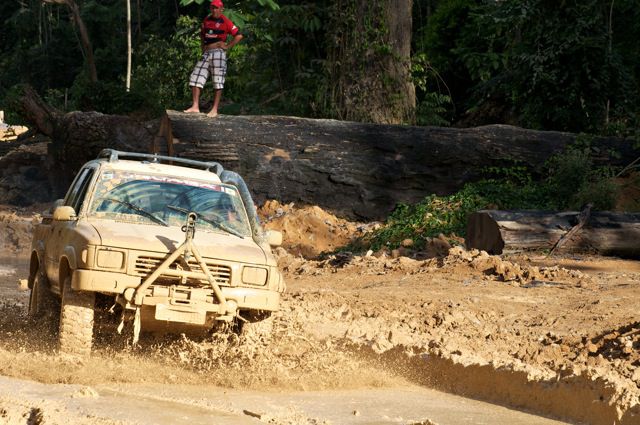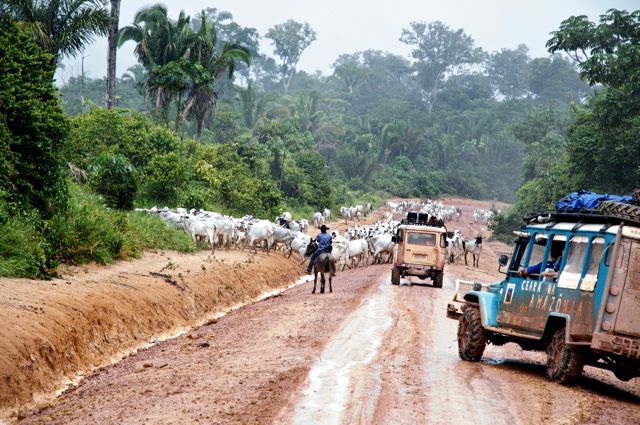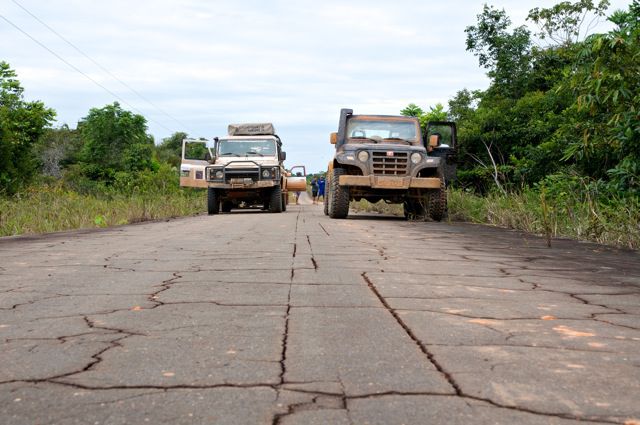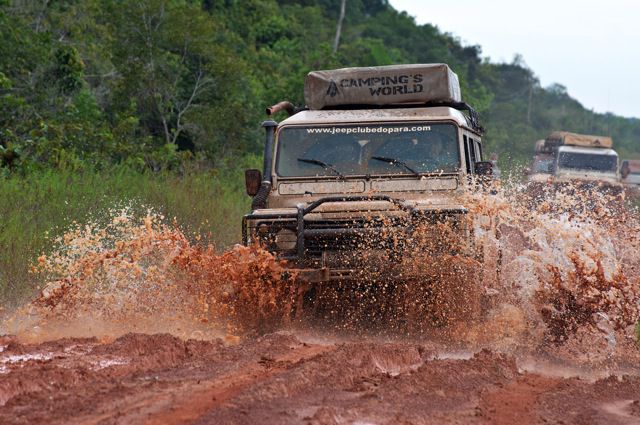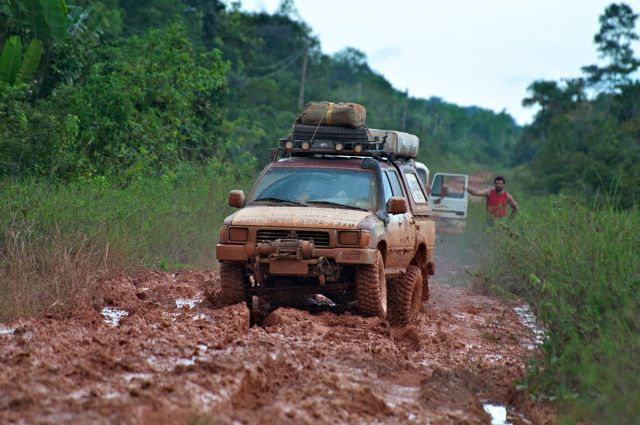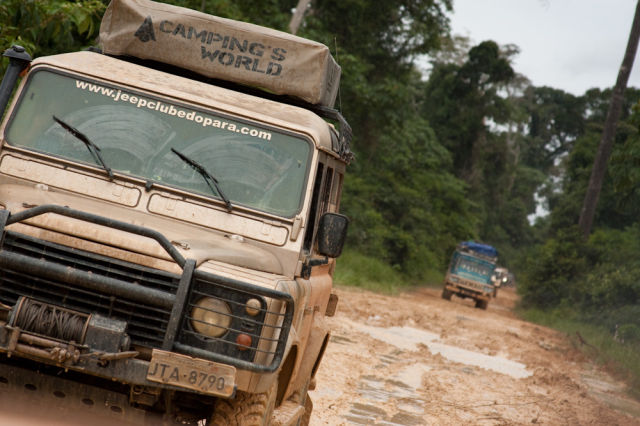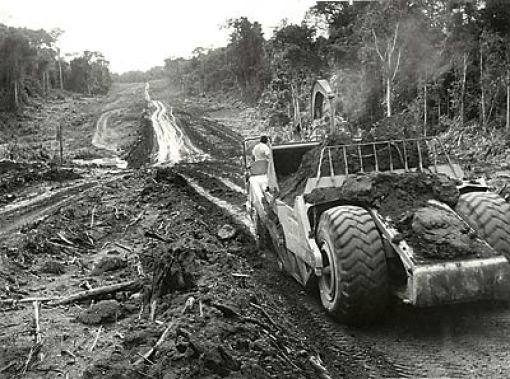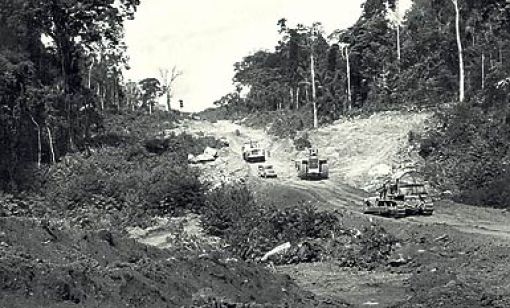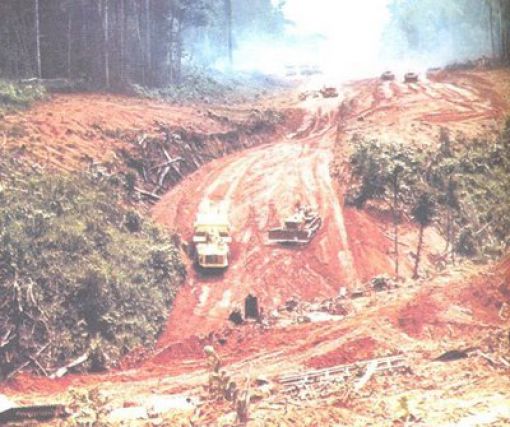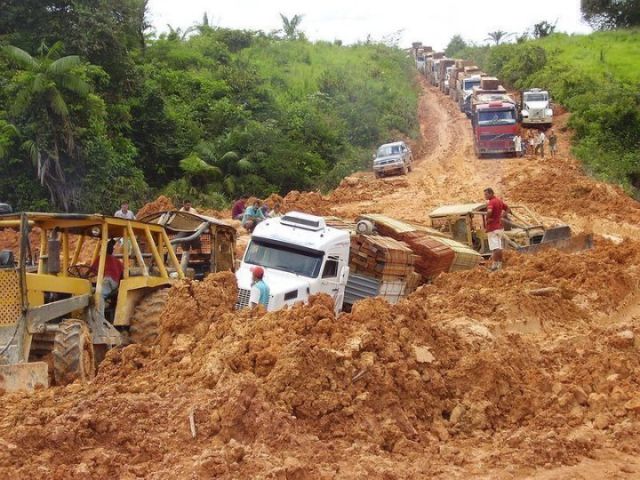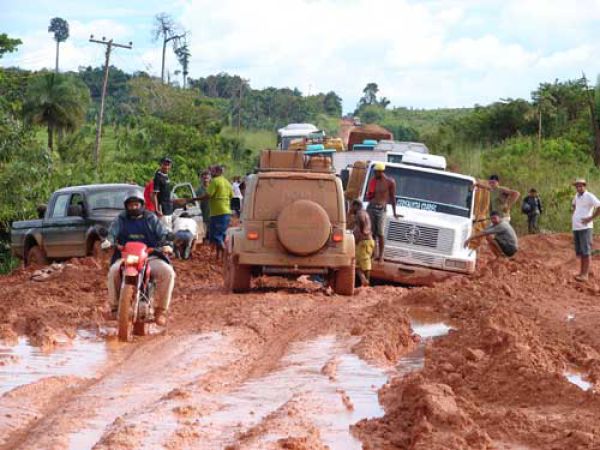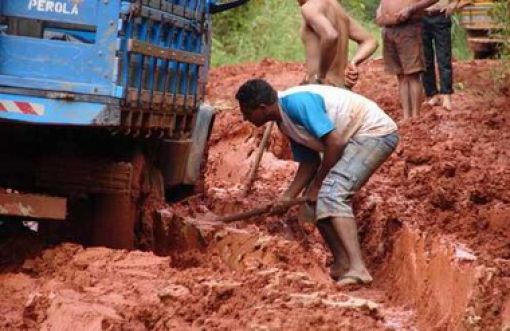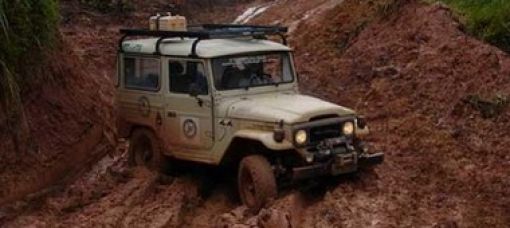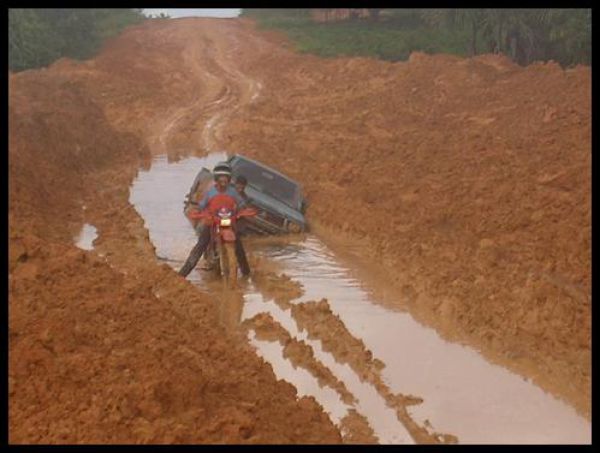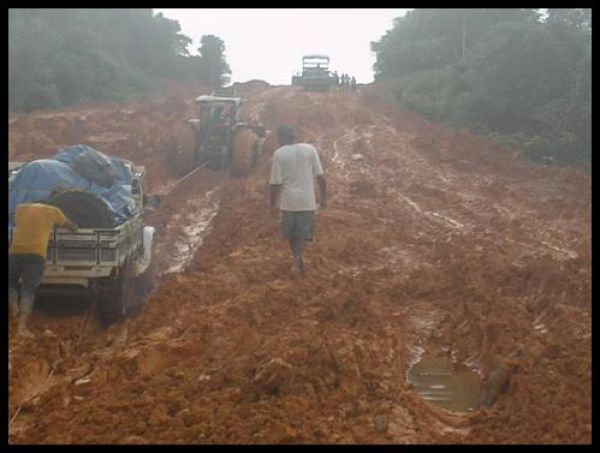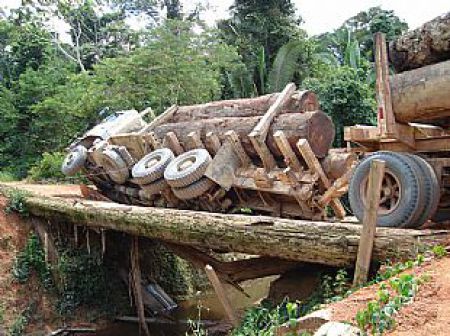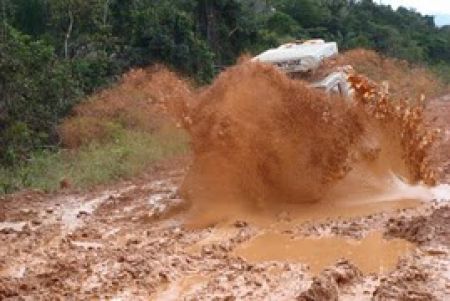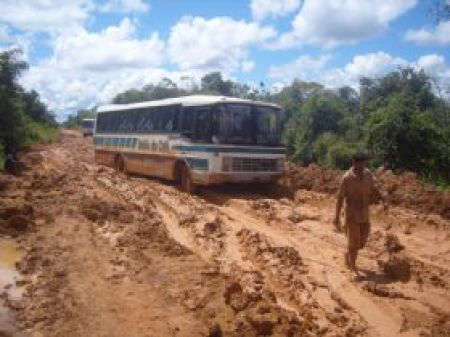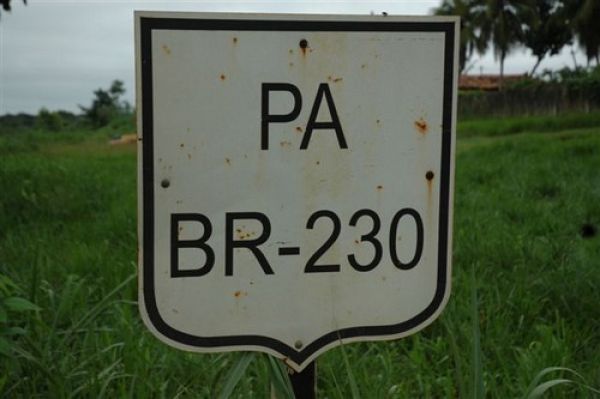 The Trans-Amazonian Highway was inaugurated on August 30, 1972. It is 5,300 km long, making it the third longest highway in Brazil. It was originally planned to be a fully
The Trans-Amazonian Highway was inaugurated on August 30, 1972. It is 5,300 km long, making it the third longest highway in Brazil. It was originally planned to be a fullypaved highway 5,200 kilometers long. However, these plans were modified
following its inauguration.
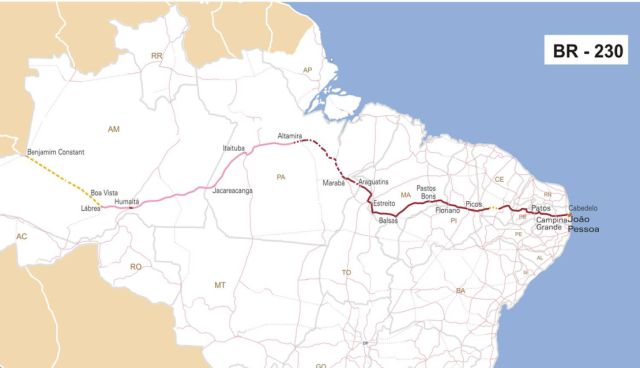
In particular, because of high construction costs and Brazil financial crisis in
the late 970s, only a part of the highway was paved, from its beginning to 200
km ahead of Marabá. The lack of a fully sealed road causes many problems. Travel
on the non-paved stretches of the highway is extremely difficult during the
region's rainy season between October and March. In the wet season cars often
get stuck in the poorly constructed road and in the dry season there are often
pot holes in the dry mud roads that damage vehicles.
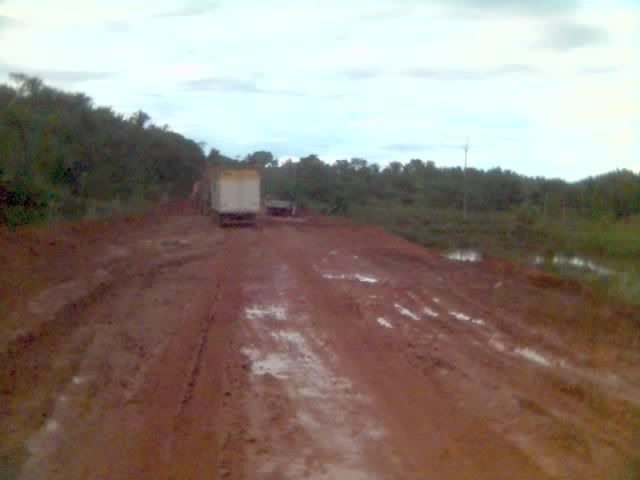
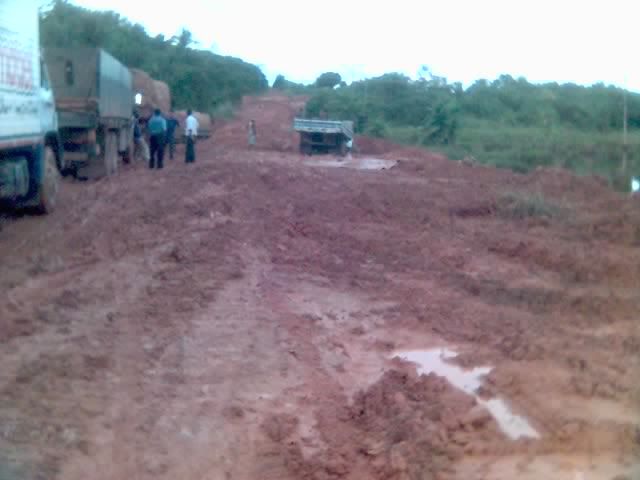 Construction of the highway was very challenging because of the remoteness of
Construction of the highway was very challenging because of the remoteness ofthe site. Workers building the road were frequently isolated and without
communication, occasional visits to nearby cities providing the only contact.
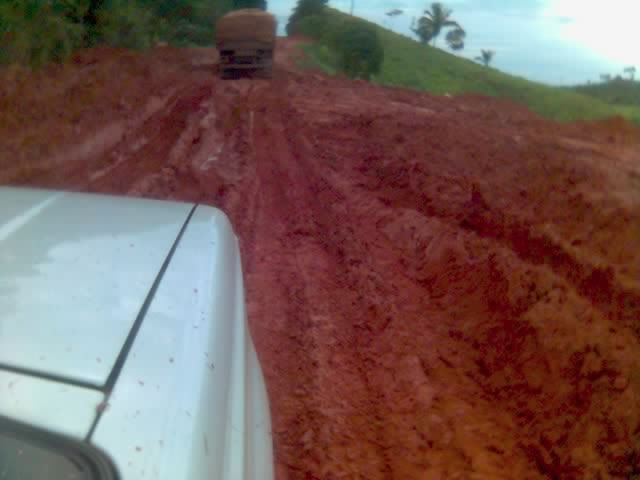
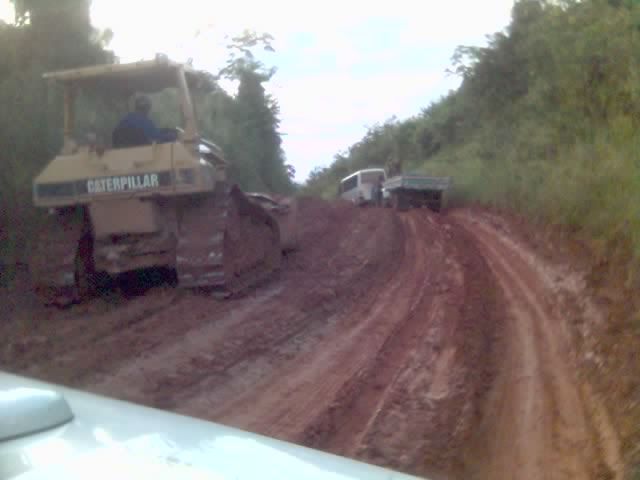 Access to the construction sites was mostly accomplished by small airplanes
Access to the construction sites was mostly accomplished by small airplanesusing temporary airstrips and boats. Today construction vehicles can be seen
traversing the road east and west bringing dirt and gravel to prepare for paving
operations.
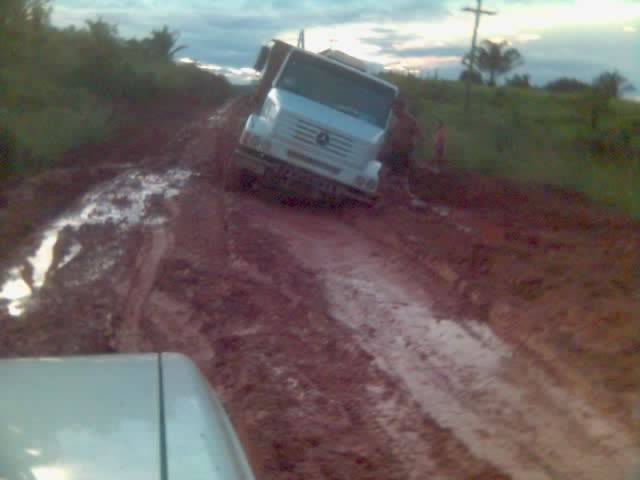
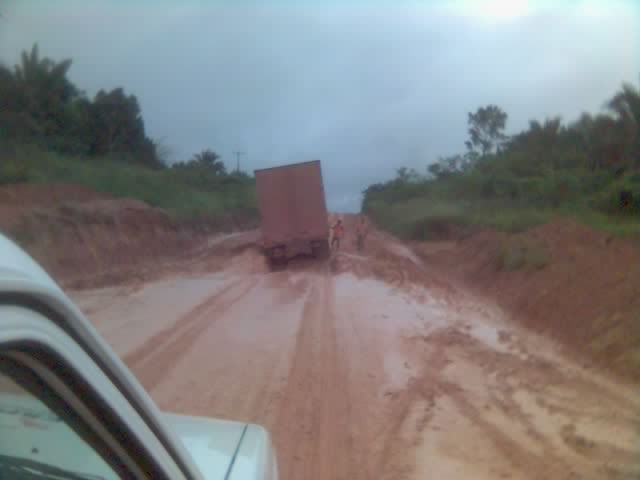 It has indirectly caused a great deal of deforestation in Brazil - where there
It has indirectly caused a great deal of deforestation in Brazil - where thereare roads it is easier to transport timber.
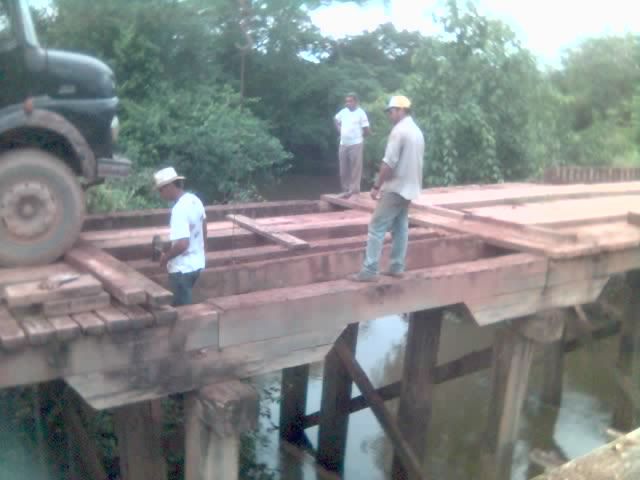
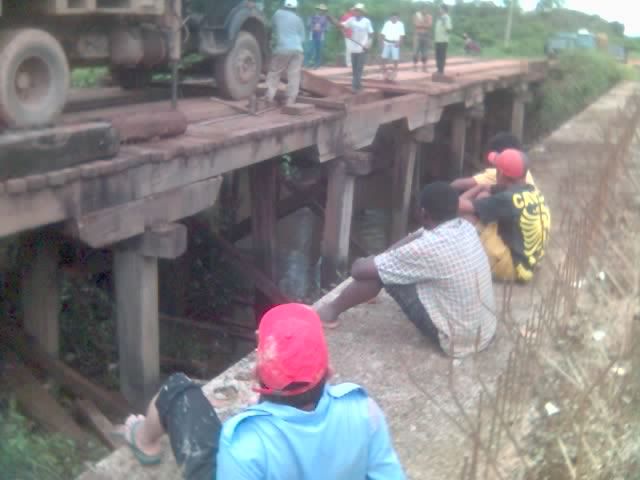 The Trans-Amazonian Highway has offered an overland route into remote areas of
The Trans-Amazonian Highway has offered an overland route into remote areas ofthe Amazon. Some adventurers have used this route to traverse the width of the
Amazon jungle.
